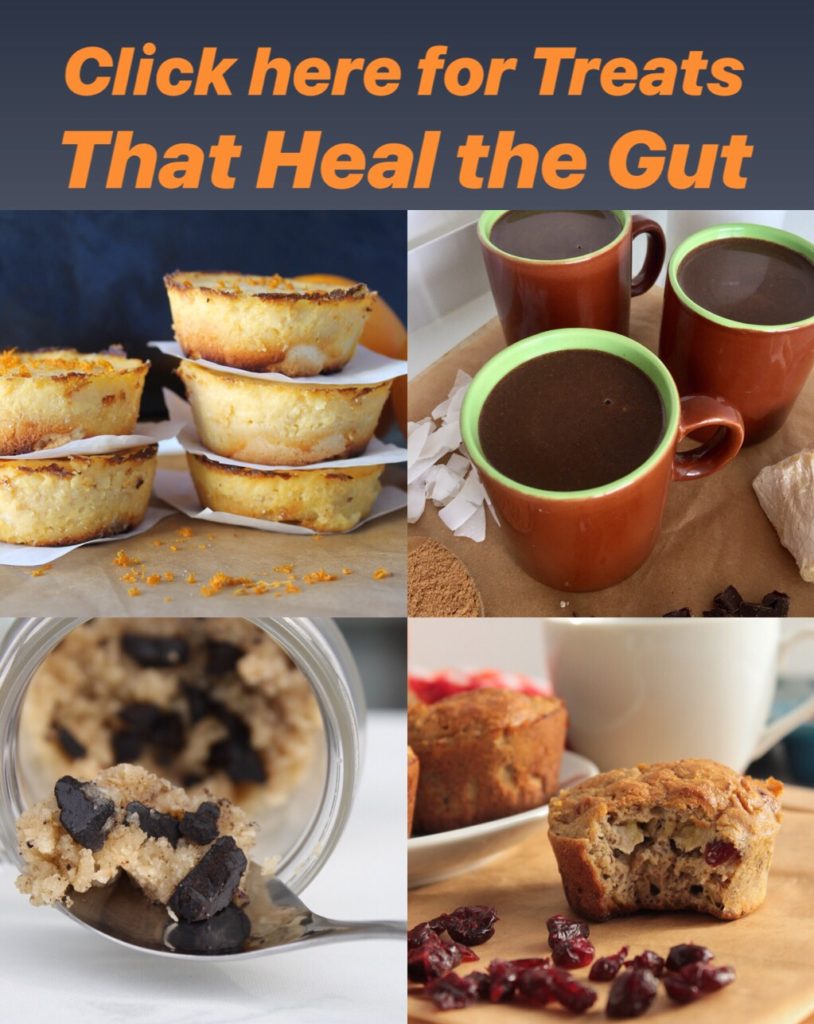It started with my jaw. I’ve had an issue with teeth grinding at night for a long time and it has gotten worse lately.
While researching the issue I discovered the hidden cause for my grinding. Low serotonin production. Last week, I wrote about the connection between perfectionism, low serotonin and IBS.
Not only does low serotonin create perfectionist tendencies, it can increase sensitivity to pain and incidence of nausea. Serotonin also regulates intestinal contractions and other automatic body functions.
Serotonin is a neurotransmitter responsible for feelings of happiness, optimism and well being. While we think of it as a brain chemical, a majority of serotonin is produced in the gut.
That’s probably why modern medicine links IBS to low serotonin production.
I don’t think low serotonin is the cause of IBS but it can make some people more vulnerable to developing digestive issues. It can also cause a host of emotional issues that are often self-perceived as personality flaws.
What if your unpleasant thoughts, emotions and behaviors were a result of low serotonin production? In other words, it’s not really you, it’s just your chemistry.
This perspective gives me hope, because it means I can change the way I feel. If tweaking serotonin can relieve physical and emotional pain I am in luck. I don’t have any physical pain, but emotionally I’ve been feeling pretty challenged lately.
I can probably chalk it up to stress, but I’ve been in a bad mood for months.
When I originally healed my gut, I also restored my serotonin balance without realizing it. But over the years, I didn’t pay attention to maintaining it, so I did several things, unknowingly, to lower my serotonin production. When I started my own business, I had an amazing flood of excitement and energy, only to crash 6 months later. Dark clouds descended upon me.
The stress brought on by my business has shown me where I am still weak. But it has also reinforced where I am strong.
My digestion has remained rock solid despite the stress, but my mood has taken the hit. But I finally have the opportunity to heal it consciously and once and for all.
What causes low serotonin production?
In my case, I’m pretty sure it is genetic. Depression, compulsiveness and anxiety run in my family and were likely passed down.
While that’s the foundation I was born with, I have the knowledge to improve on my genetics.
People born with low serotonin can exacerbate the problem with a poor diet, lack of sunlight, lack of exercise and lots of stress.
A diet full of sugar, processed carbs, artifical sweeteners, caffeine, and alcohol deplete serotonin. Even someone born with healthy serotonin levels can deplete their production through a bad diet and chronic stress.
There’s a misconception that eating whole grains can raise serotonin. It only provides a temporary bump, but does little to stimulate the body’s natural production of serotonin.
Interestingly, people with low serotonin are also perfectionist and like to be productive. We don’t let low serotonin slow us down, to get things done we simply reach for quick serotonin fixes like sugary carbs and coffee. These crutches deplete us even more.
Lifestyle factors, such as not getting enough exercise or sunlight also lower serotonin production, but the biggest serotonin zapper of all is stress. If your reserves are already low, stress can clean you out. Conversely, people with high serotonin reserves can handle a lot more stress without getting burned out.
It’s not fair, but knowing yourself and respecting your limits is the best thing you can do for yourself.
Symptoms of low serotonin
According to Julia Ross of “The Mood Cure”, when serotonin plummets, people can experience any of the following symptoms:
Panic attacks, anxiety, phobias
Pessimism, depression
Seasonal Affect Disorder (winter depression)
PMS
Sugar cravings (especially in the late afternoon)
Insomnia
Intolerance to hot weather
Muscle pain (fibromyalgia)
Hyperactivity/restlessness
Shyness, low self esteem, feelings of guilt
Irritability, impatience, anger
Obsessive or compulsive behavior (control freak, perfectionist, workaholic)
Symptoms don’t always tell the full story. So if you’re curious about your serotonin levels you can get them tested by a doctor.
How to boost serotonin
Raising serotonin from a dietary perspective requires eating a high protein, high fat diet. The healthy fats should come from omega 3 sources like fish, nuts, avocados and saturated fat in pork, beef and dairy.
Amino acid therapy is often recommended for boosting serotonin, particularly 5HTP or Tryptophan. These are the precursor building blocks of serotonin.
Conversely, following a low fat, vegetarian diet (no matter how healthy), might compromise serotonin production and mood. For a vegetarian it’s hard to get enough protein and fat to rebuild serotonin reserves.
And because caffeine, artificial sweeteners, and refined sugar are the enemies of serotonin production, these should be avoided too.
Other recommended supplements are passion flower, GABA, St. John’s Wort, fish oil, B vitamins, melatonin (for sleep), magnesium for relaxation and SAME. Often, with supplements, dosage is important. Too much or too little can make all the difference so I always recommend working with a trained professional when taking supplements.
Also, everyone tolerates supplements differently. I had a really negative reaction taking SAME before. It caused a lot of anxiety, which is the opposite of what it’s supposed to do.
If you want to take the dietary route to boosting serotonin, foods highest in tryptophan are bananas, turkey, chicken, whole milk (avoid if lactose intolerant), salmon, eggs, halibut, shrimp, tuna and lamb.
Transitioning to a serotonin-boosting diet can be a challenge. Low serotonin stimulates cravings for sugar and caffeine. But eating regularly is just as important as eating right. Skipping meals is one of the worst things you can do for serotonin balance and I’ve been guilty of this for years.
Skipping breakfast is terrible for serotonin. And for years I had only coffee or tea for breakfast. I just followed the fact that I’m never hungry in the morning, not knowing that replacing food with caffeine was doing damage to my serotonin production.
I did not feel the damage I was doing to myself because I kept my life low stress. But once the stress kicked in from running a business, my moods and emotional health suffered. I had been trashing my serotonin reserves for years.
My healing plan:
Eat a breakfast rich in protein and fat within an hour of rising. No more coffee or black tea.
I also need to work less and rest more. Definitely harder said than done, since I feel compelled to work all the time.
I need to spend more time outside in the sun, watching my dog frolick in nature. This is truly grounding for me.
Natural light/fresh air, a meal schedule, exercise, and time away from my computer is my formula for rebuilding serotonin.
I also tried amino acids, both tryptophan and 5 HTP, and they did have a slight calming effect, but they also gave me headaches and slight nausea.
Thankfully, because I follow the Paleo diet, I am already eating the ideal way for serotonin building. But eating regularly is my challenge.
As is letting go of my workaholic compulsions. But I suspect the hardest things to change will make the biggest difference.
It’s a chicken and egg scenario. My low serotonin compels me to work all the time (remember it’s a symptom of low serotonin). Yet, constant work stresses my body and mind and keeps my serotonin low.
It’s never easy to make tough changes, but I’m thankful for this opportunity to learn about my body and grow my knowledge, using my serotonin and mood as my teachers and guides.
And telling you about my journey keeps me accountable. I’ll definitely keep you posted. And I hope you’ve learned something to help you on your journey.
Here is my question to you. What have your health challenges taught you?
 Angela Privin is proof that IBS is NOT an incurable disease or a disease at all. IBS is a body out of balance. It’s an invitation for change. After solving her own IBS mystery more than a decade ago Angela trained as a health coach to help others.
Angela Privin is proof that IBS is NOT an incurable disease or a disease at all. IBS is a body out of balance. It’s an invitation for change. After solving her own IBS mystery more than a decade ago Angela trained as a health coach to help others.
Angela uses both science and intuition to help people figure out what’s out of balance in their body. She works with lab tests, dietary changes, supplementation and nervous system rebalancing. Get help rebalancing your digestive system and solving your IBS mystery here.








Pingback: How to use nature and technology to heal
Pingback: The best remedy for stress